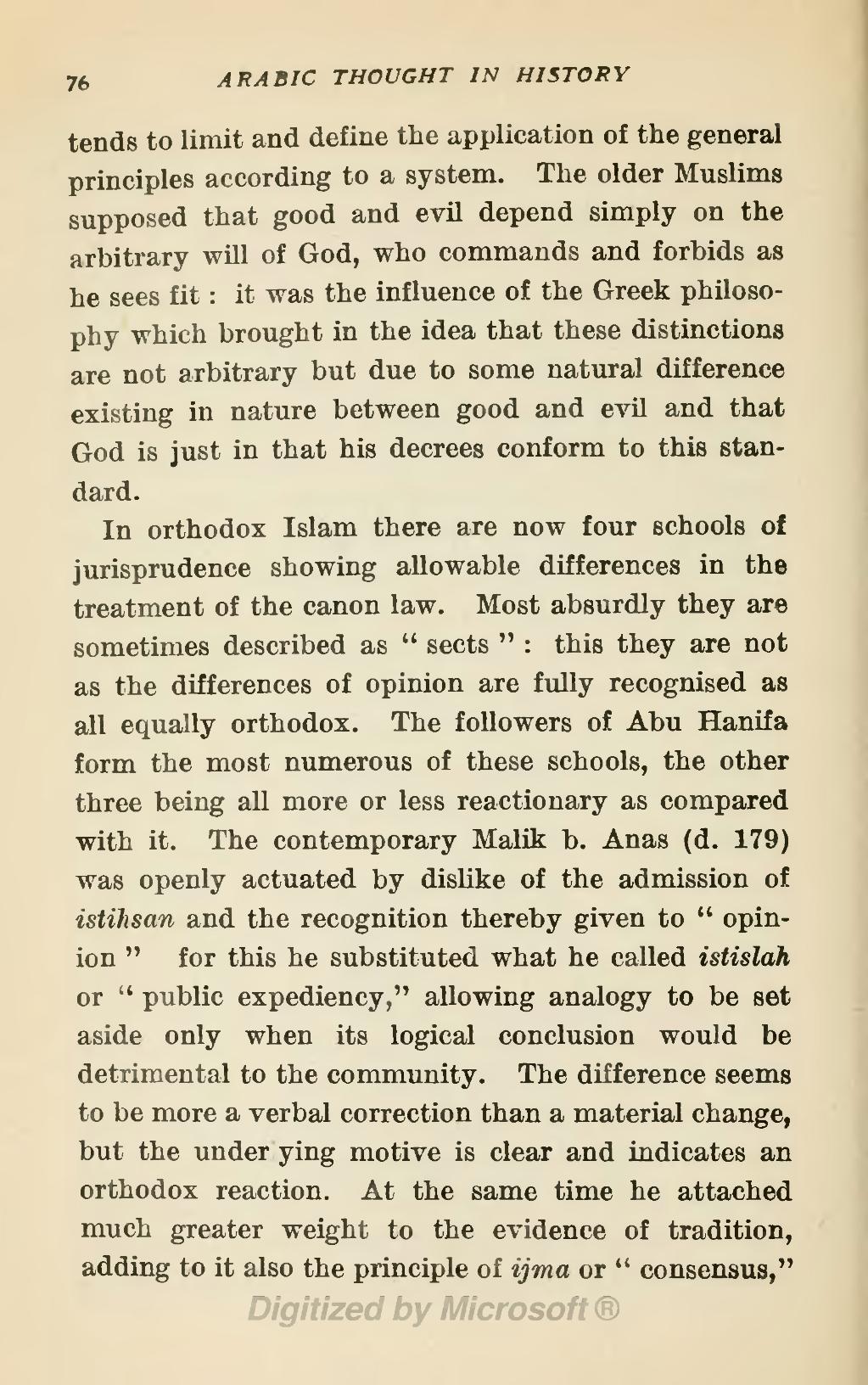tends to limit and define the application of the general principles according to a system. The older Muslims supposed that good and evil depend simply on the arbitrary will of God, who commands and forbids as he sees fit: it was the influence of the Greek philosophy which brought in the idea that these distinctions are not arbitrary but due to some natural difference existing in nature between good and evil and that God is just in that his decrees conform to this standard.
In orthodox Islam there are now four schools of jurisprudence showing allowable differences in the treatment of the canon law. Most absurdly they are sometimes described as "sects": this they are not as the differences of opinion are fully recognised as all equally orthodox. The followers of Abu Hanifa form the most numerous of these schools, the other three being all more or less reactionary as compared with it. The contemporary Malik b. Anas (d. 179) was openly actuated by dislike of the admission of istihsan and the recognition thereby given to "opinion" for this he substituted what he called istislah or "public expediency," allowing analogy to be set aside only when its logical conclusion would be detrimental to the community. The difference seems to be more a verbal correction than a material change, but the underlying motive is clear and indicates an orthodox reaction. At the same time he attached much greater weight to the evidence of tradition, adding to it also the principle of ijma or "consensus,"
